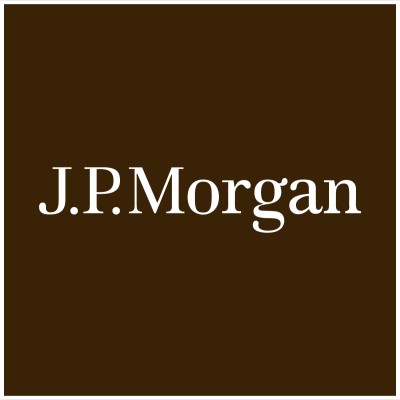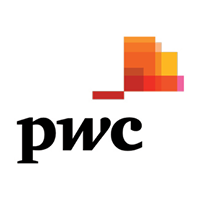EQT's Bold Move: Transforming Waste Management in South Korea
August 17, 2024, 3:58 am
In a world grappling with waste, EQT is stepping up. The investment firm has announced its acquisition of KJ Environment and its affiliates, a strategic play aimed at reshaping waste treatment in South Korea. This deal is not just about numbers; it’s about building a sustainable future.
EQT Infrastructure VI is making waves with this definitive agreement. The acquisition is a leap into the heart of South Korea’s waste management landscape. KJ Environment is not just another player; it’s a leader in plastic recycling and waste-to-energy solutions. This partnership aims to create a comprehensive waste treatment platform, addressing the pressing need for effective waste management.
Why South Korea? The country is a bustling hub, home to over half of the nation’s population and a significant portion of its GDP. KJ Environment operates strategically located facilities in the Greater Seoul Metropolitan Area. This gives it a unique advantage in managing waste efficiently. The platform’s core competencies include recyclable waste sorting, plastic recycling, and waste-to-energy capabilities. It’s a trifecta of solutions designed to tackle the waste crisis head-on.
The global demand for recycled plastic is surging. Regulations are tightening, and companies are making voluntary commitments to sustainability. This is where KJ Environment shines. It has stable access to high-quality waste plastic feedstock. With cutting-edge technology, it produces advanced recycled plastics suitable for food and beverage products. This is not just recycling; it’s a commitment to safety and quality.
Sorting is the backbone of South Korea’s waste treatment system. All recyclable waste is aggregated and processed before being sent to recycling facilities. This meticulous process ensures that valuable materials are not lost. EQT recognizes the importance of this step and aims to enhance it further. By introducing automated machinery and digital solutions, they plan to streamline operations and improve efficiency.
EQT’s investment is more than financial. It’s a commitment to operational support. The firm plans to deepen customer partnerships and build trust within the communities it serves. This is crucial in a market where public perception can make or break a company. EQT understands that success in waste management is not just about technology; it’s about relationships.
This acquisition marks EQT’s second infrastructure investment in South Korea. The firm has been active in the region since 2009, viewing it as a key part of its Asia Pacific strategy. With a track record of investing in climate-related infrastructure, EQT is well-positioned to support South Korean businesses in achieving their growth objectives. The firm’s global sector teams and in-house experts will provide the necessary expertise to navigate this complex landscape.
The timing of this acquisition is critical. As global awareness of environmental issues grows, the demand for sustainable solutions is at an all-time high. Companies are under pressure to adopt greener practices. EQT’s investment aligns perfectly with this trend. By focusing on circular economy infrastructure, they are not just investing in a company; they are investing in a vision for a sustainable future.
EQT’s commitment to sustainability is evident in its approach. The firm has already committed EUR 5 billion in equity to Asia Pacific companies since 2020. This investment is a testament to their belief in the region’s potential. With approximately 11,000 employees in their Asia Pacific portfolio, EQT is not just a financial player; they are a significant employer in the region.
The acquisition is subject to customary conditions and approvals, with an expected closing in Q4 2024. This timeline reflects the careful planning and due diligence that EQT undertakes in its investments. The firm is advised by JP Morgan, Kim & Chang, and PwC, ensuring that all aspects of the transaction are handled with expertise.
EQT’s vision extends beyond mere profit. They aim to future-proof companies and generate attractive returns while making a positive impact. This philosophy is rooted in the Wallenberg family’s entrepreneurial mindset, emphasizing long-term ownership and sustainability.
In conclusion, EQT’s acquisition of KJ Environment is a bold step towards transforming waste management in South Korea. It’s a strategic move that addresses a critical need while aligning with global sustainability trends. As the world faces increasing waste challenges, partnerships like this one offer a glimmer of hope. With innovative solutions and a commitment to community, EQT is not just investing in a company; they are investing in a cleaner, greener future. The journey has just begun, and the potential is limitless.
EQT Infrastructure VI is making waves with this definitive agreement. The acquisition is a leap into the heart of South Korea’s waste management landscape. KJ Environment is not just another player; it’s a leader in plastic recycling and waste-to-energy solutions. This partnership aims to create a comprehensive waste treatment platform, addressing the pressing need for effective waste management.
Why South Korea? The country is a bustling hub, home to over half of the nation’s population and a significant portion of its GDP. KJ Environment operates strategically located facilities in the Greater Seoul Metropolitan Area. This gives it a unique advantage in managing waste efficiently. The platform’s core competencies include recyclable waste sorting, plastic recycling, and waste-to-energy capabilities. It’s a trifecta of solutions designed to tackle the waste crisis head-on.
The global demand for recycled plastic is surging. Regulations are tightening, and companies are making voluntary commitments to sustainability. This is where KJ Environment shines. It has stable access to high-quality waste plastic feedstock. With cutting-edge technology, it produces advanced recycled plastics suitable for food and beverage products. This is not just recycling; it’s a commitment to safety and quality.
Sorting is the backbone of South Korea’s waste treatment system. All recyclable waste is aggregated and processed before being sent to recycling facilities. This meticulous process ensures that valuable materials are not lost. EQT recognizes the importance of this step and aims to enhance it further. By introducing automated machinery and digital solutions, they plan to streamline operations and improve efficiency.
EQT’s investment is more than financial. It’s a commitment to operational support. The firm plans to deepen customer partnerships and build trust within the communities it serves. This is crucial in a market where public perception can make or break a company. EQT understands that success in waste management is not just about technology; it’s about relationships.
This acquisition marks EQT’s second infrastructure investment in South Korea. The firm has been active in the region since 2009, viewing it as a key part of its Asia Pacific strategy. With a track record of investing in climate-related infrastructure, EQT is well-positioned to support South Korean businesses in achieving their growth objectives. The firm’s global sector teams and in-house experts will provide the necessary expertise to navigate this complex landscape.
The timing of this acquisition is critical. As global awareness of environmental issues grows, the demand for sustainable solutions is at an all-time high. Companies are under pressure to adopt greener practices. EQT’s investment aligns perfectly with this trend. By focusing on circular economy infrastructure, they are not just investing in a company; they are investing in a vision for a sustainable future.
EQT’s commitment to sustainability is evident in its approach. The firm has already committed EUR 5 billion in equity to Asia Pacific companies since 2020. This investment is a testament to their belief in the region’s potential. With approximately 11,000 employees in their Asia Pacific portfolio, EQT is not just a financial player; they are a significant employer in the region.
The acquisition is subject to customary conditions and approvals, with an expected closing in Q4 2024. This timeline reflects the careful planning and due diligence that EQT undertakes in its investments. The firm is advised by JP Morgan, Kim & Chang, and PwC, ensuring that all aspects of the transaction are handled with expertise.
EQT’s vision extends beyond mere profit. They aim to future-proof companies and generate attractive returns while making a positive impact. This philosophy is rooted in the Wallenberg family’s entrepreneurial mindset, emphasizing long-term ownership and sustainability.
In conclusion, EQT’s acquisition of KJ Environment is a bold step towards transforming waste management in South Korea. It’s a strategic move that addresses a critical need while aligning with global sustainability trends. As the world faces increasing waste challenges, partnerships like this one offer a glimmer of hope. With innovative solutions and a commitment to community, EQT is not just investing in a company; they are investing in a cleaner, greener future. The journey has just begun, and the potential is limitless.

